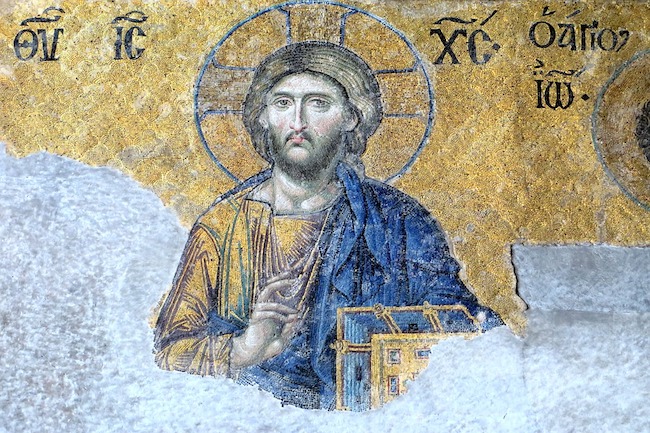How is Jesus a rock of offense (Romans 9:33; 1 Peter 2:8)? from Compelling Truth
Romans 9:33 says, “As it is written, ‘Behold, I am laying in Zion a stone of stumbling, and a rock of offense; and whoever believes in him will not be put to shame.'” This same phrase appears in 1 Peter 2:8. Both Paul and Peter are referring to Isaiah 8:14–15. There we read, “And he will become a sanctuary and a stone of offense and a rock of stumbling to both houses of Israel, a trap and a snare to the inhabitants of Jerusalem. And many shall stumble on it. They shall fall and be broken; they shall be snared and taken” (Isaiah 8:14–15).
As with the interpretation of anything in Scripture, we must first view the context. In Isaiah 8, the prophet begins with a warning from God that the Assyrians are going to invade. God instructs Isaiah to trust in Him and not in the voices of the people of Israel. “But the LORD of hosts, him you shall honor as holy. Let him be your fear, and let him be your dread” (Isaiah 8:13). In other words, honor and fear God, not people. Then God follows with our verses from above. Notice what He says: the “LORD of hosts” will “become a sanctuary” and “a stone of offense” and “a rock of stumbling.” The prophecy is about Jesus Christ.
At the end of Romans 9, Paul asks and answers an important question: “What shall we say, then? That Gentiles who did not pursue righteousness have attained it, that is, a righteousness that is by faith; but that Israel who pursued a law that would lead to righteousness did not succeed in reaching that law. Why? Because they did not pursue it by faith, but as if it were based on works. They have stumbled over the stumbling stone, as it is written, ‘Behold, I am laying in Zion a stone of stumbling, and a rock of offense; and whoever believes in him will not be put to shame'” (Romans 9:30–33).
Paul is pointing out fulfillment of the prophecy from Isaiah 8. The “stumbling stone” is Jesus Christ, who is called the Cornerstone (e.g., Psalm 118:22; Isaiah 28:16; Zechariah 10:4; Matthew 21:42; Mark 12:10; Luke 20:17; Acts 4:11; Ephesians 2:20). Some scholars will refer to the “stone” as the Law of Moses. Indeed, the term can be used to represent both in this instance. Israel stumbled over the Law because they pursued it by works rather than faith. But they also stumbled over Jesus, their religious leaders not accepting Him as the Messiah. We can also see the connection between Jesus and the Law. Jesus said, “Do not think that I have come to abolish the Law or the Prophets; I have not come to abolish them but to fulfill them” (Matthew 5:17). In other words, the Law was not complete until Jesus’ birth, life, ministry, death, and resurrection. In another instance, Jesus said, “You search the Scriptures because you think that in them you have eternal life; and it is they that bear witness about me” (John 5:39). The Old Testament, including the Mosaic law, points to Jesus.




